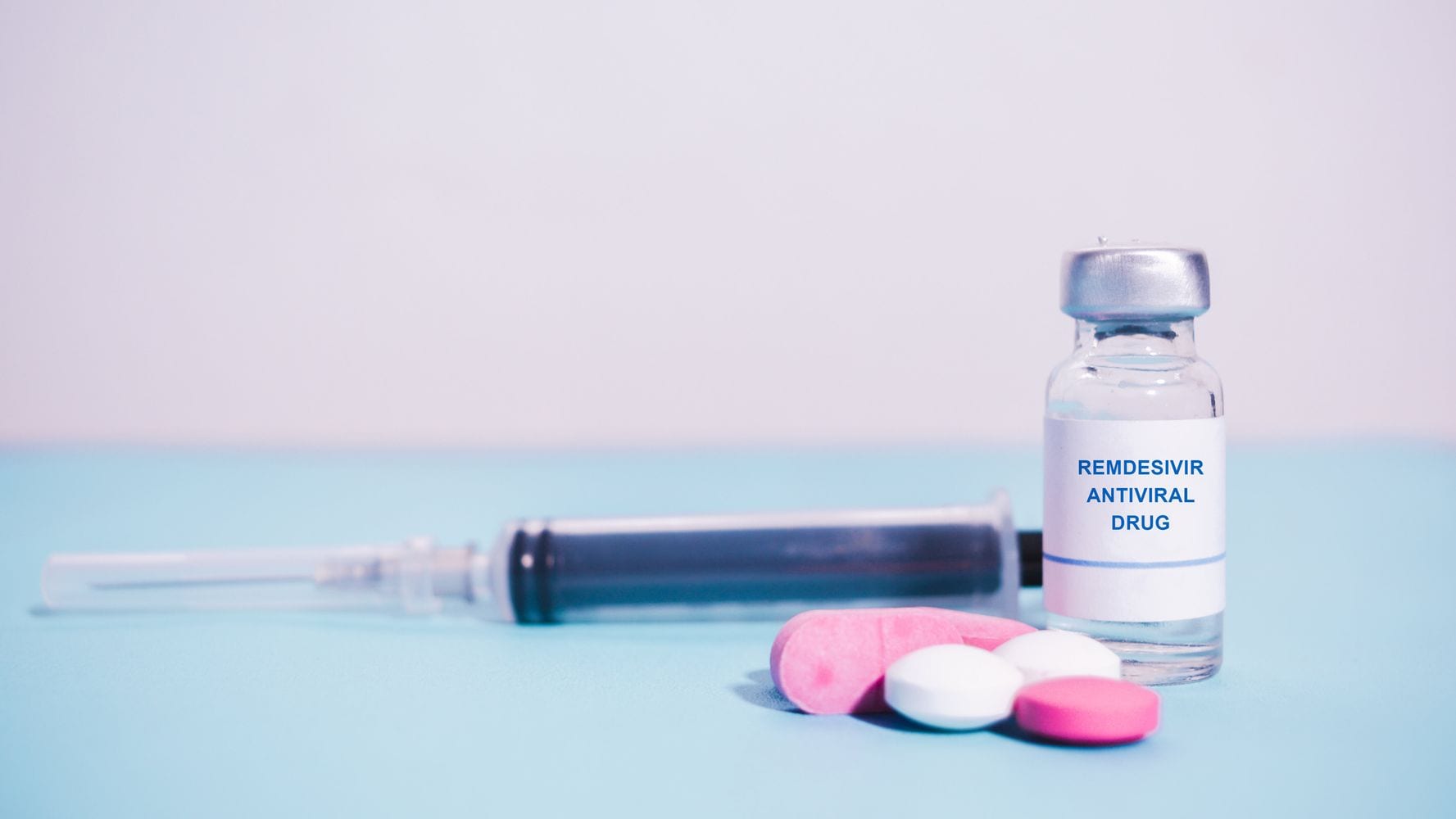[ad_1]
Remdesivir is the new coronavirus buzzword popping up in headline after headline. Health officials have had their eyes on the investigational anti-viral drug for the past few weeks, hoping it may prove to be an effective treatment for COVID-19, the disease caused by the new coronavirus.
Now, we’ve got a bit of evidence suggesting the medicine can speed up the time it takes a hospitalized COVID-19 patient to recover. Given the dire need for a cure, the Food and Drug Administration pounced on the findings and authorized the emergency use of remdesivir in hospitalized patients who need it (specifically adults and children who need oxygen therapy or a ventilator).
The manufacturer behind remdesivir, Gilead, is teaming up with the government to donate over 1 million vials of the drug to patients in need. (Gilead, some might remember, was involved in a 2019 lawsuit from the Trump administration accusing the drugmaker of guzzling money off of taxpayer-funded research on the leading HIV prevention therapy PrEP.)
Health experts are cautiously optimistic about remdesivir. However, even though there’s some evidence that the experimental drug may help clear the virus out of a person’s system, they want to see more studies validate the findings.
Here’s what we know about the experimental anti-viral medication:
How remdesivir works
COVID-19 is caused by a viral infection. When the coronavirus infects one of our cells, perhaps in our nose or throat, the virus starts replicating itself over and over again to help spread the infection throughout the body.
Viruses essentially use our cells as little factories to make all of the genetic ingredients that allow them to survive and thrive in our bodies, said Matthew Heinz, a hospitalist and internist at the Tucson Medical Center. The more a virus replicates, the more widespread and harmful the infection can be.
Remdesivir is an anti-viral that prevents the virus from making copies of itself. “It’s a therapy that inhibits the ability of the virus to replicate, something that is commonly done in multiple other anti-viral agents,” Heinz said.
A new study by the National Institutes of Health evaluating remdesivir and COVID-19 found that hospitalized coronavirus patients who took the drug experienced a 31% improvement in recovery time compared to patients who took a placebo. Patients who took the drug recovered in 11 days on average, whereas those who didn’t made a comeback in 15 days.
The NIH study, which is the first trial in humans, also found the mortality rate was 11.6% in the placebo group and 8% in the treatment group.
Another study led by Stanford University on behalf of Gilead found that the treatment was just as effective when taken for five days as it was for 10 days. A difference of a few days may seem trivial, but in severe cases, even those few days could be life-changing.
Aruna Subramanian, a clinical professor of infectious disease and co-principal investigator of the Gilead trials at Stanford, said each day counts when you’re in the intensive care unit.
“Reducing your hospital stay by four days, from 15 days to 11 days, is very impressive in the middle of a pandemic where every day in the hospital counts, every day on oxygen counts. Having to use protective equipment to go in the rooms — four days less of that is a big step,” Subramanian said.

Remdesivir is a treatment, not a cure
One point Heinz was keen on making is that remdesivir is a treatment, not a cure. There is no known cure for any coronavirus — not COVID-19, not SARS or MERS, nor the other four coronaviruses that cause the common cold.
“This is not like a cure-all, great, we’re done and we can forget about social distancing, it’s over — no,” Heinz said.
Rather, remdesivir can be used as an adjustive therapy — on top of all the other supportive treatments being administered at the hospital — to help more people with severe symptoms recover.
When used as an adjunct therapy, Heinz said, it can likely “get more people through this process — get them off ventilators sooner, get them out of the hospital sooner, get them off oxygen dependence sooner.”
We’ve seen remdesivir before
This isn’t the first go-round for remdesivir. Though it’s not actively used with any other infections, it’s been in the works for quite some time.
Scientists have previously considered the drug for Ebola (didn’t do the trick), along with the other big coronaviruses SARS and MERS (the evidence was compelling in mice and monkeys).
In laboratory and animal-based studies, remdesivir proved to be more active at fighting coronaviruses than other drugs were. And even though the drug wasn’t tested out on humans for treating SARS or MERS in the real world, researchers suspected it would be our best bet with COVID-19, Subramanian said.
More research desperately needed
Heinz said this undertaking with remdesivir is monumental and daunting. We’re not taking a cure that has been undeniably proven to work for SARS and MERS and modifying it for COVID-19. We’re looking at a drug that showed some promise with those coronaviruses and seeing how well it works with an entirely new infection. And we’re doing that in a matter of weeks — not months or years, as typically required.
“What we’re trying to do in, like, 10 seconds has literally never been done in a 100 years of medicine or more,” Heinz said.
We definitely need more studies to ensure the findings hold up. “We need multiple trials, multiple studies, research to consistently show this pattern [that remdesivir works],” Heinz said.
Researchers also need to dig into all the data and map out the best way to use remdesivir. According to Subramanian, researchers will need to determine when people should start the treatment (it seems, now, that the earlier you treat, the better the outcome). They also need to figure out what groups of patients you should really target ― and who may be worse off without treatment ― and where the drug can make the biggest impact.
After that, the next move would be to look at combination therapies, Subramanian noted, and see if there’s any medication that can be combined with remdesivir to make it even more effective. We need to see this through, Heinz said — but all things considered, what we’re seeing is really promising.
Experts are still learning about the novel coronavirus. The information in this story is what was known or available as of press time, but it’s possible guidance around COVID-19 could change as scientists discover more about the virus. Please check the Centers for Disease Control and Prevention for the most updated recommendations.
A HuffPost Guide To Coronavirus

















